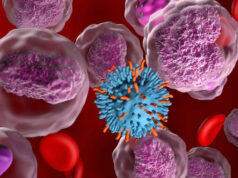 Doctors around the world still hold the writings and manner of care of medieval philosopher-physician Moses Maimonides (Rambam)in high regard. His teachings have left a significant mark on modern medical practice. Famously dubbed the Prince of Physicians, Maimonides’ 10 influential medical texts find their basis in Jewish law and advance a philosophy with significant implications for modern doctors, nurses, and hospitals.
Doctors around the world still hold the writings and manner of care of medieval philosopher-physician Moses Maimonides (Rambam)in high regard. His teachings have left a significant mark on modern medical practice. Famously dubbed the Prince of Physicians, Maimonides’ 10 influential medical texts find their basis in Jewish law and advance a philosophy with significant implications for modern doctors, nurses, and hospitals.
The story of Maimonides’ life is one of endless intrigue. Born in Cordova, Spain in 1135, he ultimately served as personal physician to the Sultan in Cairo. Renowned for his skill, Maimonides may have been offered a similar position serving King Richard the Lion Heart of England.
“Historians can argue about dates and facts, but what is really important is the practical legacy of Rambam’s ideas,” Dr. Beni Gesundheit, pediatric hematologist-oncologist and stem cell researcher in Israel, said. “Maimonides said a physician should treat his patients with optimism, joy and utmost kindness. This is an extraordinarily strong message at the time that he was writing.”
Indeed, Maimonides lived in a stifling era of constant war and oppressive church edicts.
“What people knew in the 12th century was all derived from classical sources. At this time new insights and new research were not encouraged by the church. People didn’t ask questions,” added Gesundheit, who holds a PhD in Bioethics.
Despite medieval restrictions on free thought, Maimonides invoked the scientific method in his medical practice, insisting on personally observing his patients, providing bedside care, and relentlessly pursuing knowledge that improved treatments.
Rambam’s extraordinary commitment to his profession is well documented in a famous letter to his friend and colleague, Rabbi Samuel Ibn Tibbon, written in 1199:
 “Every day, early in the morning, I go to Cairo and even if nothing happens there, I do not return to Fostat (his home, approximately 1.5 miles away) until the afternoon. Then I am famished but I find the antechambers filled with people, Jews and gentiles, nobles and common people, judges and policemen, friends and enemies—a mixed multitude who await the time of my return.”
“Every day, early in the morning, I go to Cairo and even if nothing happens there, I do not return to Fostat (his home, approximately 1.5 miles away) until the afternoon. Then I am famished but I find the antechambers filled with people, Jews and gentiles, nobles and common people, judges and policemen, friends and enemies—a mixed multitude who await the time of my return.”
Confronted with these crowds, the exhausted physician would dismount, invite his patients to join him for a brief refreshment, and then set to work writing prescriptions and directions for their ailments.
Maimonides’ sensitivity and devotion to the sick, providing treatment fairly and equally, regardless of their background, politics, religion or social station, exemplifies the essence of the Hippocratic oath that new doctors today still take upon graduation from medical school.
“You have a standard of care and the Rambam text helps establish guidelines to strive toward,” Deborah Hemstreet, international relations writer at the Rambam Health Care Campus in Haifa, Israel, said regarding her institution’s relationship to Maimonides.
Hemstreet assists in the publication of the Rambam Maimonides Medical Journal, an open access, peer-reviewed online source that regularly publishes scientific articles by doctors, rabbis, and other professionals whose work relates to Rambam’s ideas and legacy.
Beyond providing an example for how doctors should attend to their patients in the exam room, much of the actual medicine that Maimonides practiced is still relevant.
“Maimonides made very wise assessments about what foods were unhealthy, and what people should eat in different seasons. He understood that eating too much and too fast was problematic,” Dr. Fred Rosner, said.
Rosner then quoted the fourth chapter of Maimonides’ Mishneh Torah: “In order to be healthy and serve the Lord, one must do everything one can to stay healthy.”
“Preparedness is essential, and Maimonides had many insights into preventative medicine,” Gesundheit added.
Maimonides’ comments on the medical issues of his time foreshadowed the modern era of public health measures. Gesundheit noted, “Rambam makes several interesting statements about snake bites, a common affliction in Egypt. He suggested that there should be a bank with stocks of the antibodies for all the known types of venomous snakes. He also argued for better neighborhoods, away from bad smells.”
Likewise, Maimonides’ Glossary of Drug Names presages the complex and meticulous prescribing practices of the modern physician. “Let’s put everything on the table, let’s have a list, and let’s make sure we understand the preparation and uses of these medicines,” Gesundheit related, explaining Maimonides’ rationale for compiling his pharmacopeia. The project required the use of seven languages, and Maimonides painstakingly sought out experts from all over the known world to accurately record their well-honed methods and novel remedies.
Undoubtedly, modern sanitation standards, hospital resource distribution and planning, and today’s medical research methodology all stem, at least in part, from this forward-thinking, 12th-century physician. Most influential of all, however, were Maimonides’ teachings on the special nature of the patient-physician relationship.
Maimonides preferred to treat patients in their homes. That way he could note all factors affecting their condition and make a complete assessment of their health. This may be one place where the modern world diverts from Maimonides’ teaching. As the current demand for health care increases, a doctor’s personal and intimate home visit, let alone an adequate-length office visit, becomes ever more scarce.
While the comforting and relational qualities of medical care may be vanishing, Gesundheit is optimistic that doctors can reclaim their significance in the lives of their patients.
“Even though we have the Internet and progress in our communications,” he said, “that doesn’t mean we can’t invest more human energy in our patients’ care.”
Maimonides would concur.



